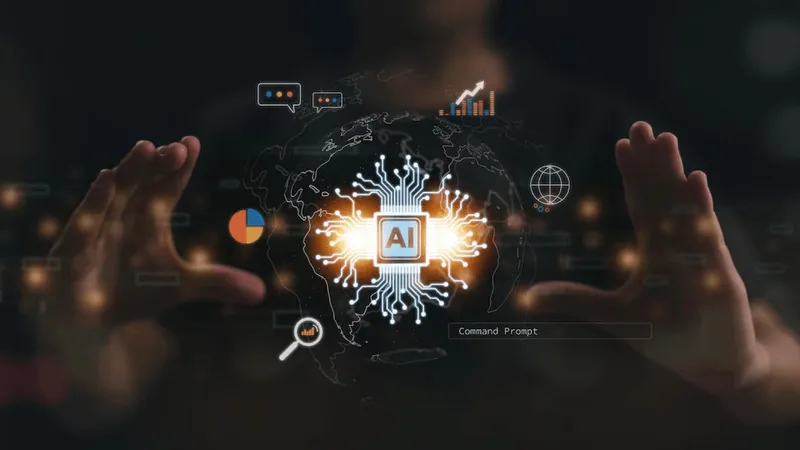Uncover the ways in which Artificial Intelligence is redefining the landscape of influence within the digital era, altering the dynamics of social media and the decision-making frameworks in corporate and political spheres. Delve into the critical function that AI plays in shaping the influential contours of the modern world.
Introduction
In today’s digital landscape, Artificial Intelligence (AI) stands as a pivotal force of influence, reshaping decision-making, opinion formation, and the allocation of power. This piece explores AI’s significant effects across different domains such as media, commerce, governance, and social conventions, providing an extensive examination of its widespread influence and potential.2of30Show learn more suggestions
Understanding AI’s Role in Influence
Defining AI in the Context of Influence
Artificial Intelligence employs techniques like machine learning and deep learning to mimic intelligent actions and autonomously decide. Regarding influence, AI systems scrutinize extensive data sets to discern patterns, forecast results, and sway decision-making on personal and broader scales.
How AI Technologies Harness Influence
Artificial Intelligence systems utilize algorithms capable of curating information, tailoring social media content, and selectively presenting news, thus influencing public opinion and individual tastes in a nuanced manner.
AI’s Impact on Various Domains
Influence in Social Media
Algorithms in Artificial Intelligence dictate the content displayed on social networks such as Facebook, Twitter, and Instagram, steering social movements and interpersonal dynamics. They possess the ability to elevate specific content, which can alter collective viewpoints and conversations.
AI in Marketing and Consumer Behavior
In marketing, AI looks at what customers like to show them ads and products they might want to buy, which really helps in deciding what people end up buying and which brands they stick with.
Political Influence and AI
In political campaigns, AI helps to divide up the voters and send them special messages that are just for them. This can really change who wins an election and what people talk about when it comes to making new laws.
AI and Cultural Influence
AI in services like Netflix and Spotify suggests shows and music to people, helping decide what gets popular and what everyone talks about in culture.
Ethical Implications and Challenges
The Issue of AI Bias
If AI learns from data that’s not fair, it can make decisions that aren’t fair either. This can change what people think is normal and can affect their lives a lot.
Transparency and Accountability in AI
People are wanting to know more about how AI makes choices, especially when those choices really matter for everyone’s life and the way society works.
Regulating AI’s Influence
It’s important to make good rules for using AI in important things like voting, sharing news, and keeping personal information safe. This helps keep our freedom and fair systems in place.
The Future of AI and Influence
Predictive Analytics and Real-time Influence
As AI gets better, it will be able to guess what might happen next in smarter ways. This means it can help figure out how to get people’s attention right away, whether it’s for selling things, running for office, or just what people see and talk about online.
AI’s Role in Shaping Future Societies
As AI gets smarter, it will help decide what’s normal and important by being a big part of learning, fun stuff like movies and games, and how we talk to each other.
Challenges and Opportunities Ahead
AI can make things work better and bring new ideas, but we also have to be careful with it so it doesn’t cause problems for people.
Conclusion
AI is changing things in big ways and it’s pretty complicated. As we figure out this new world, we need to use AI’s good points while dealing with the tricky parts by making smart rules, building AI the right way, and always talking to people about it. Getting how AI changes the way we think and act is super important to make sure the future is fair and good for everyone. Enges our concepts of identity and culture. As technology becomes more integrated into our lives, it will influence how we perceive ourselves and interact with others.
FAQs:
How does AI influence consumer decisions? AI influences consumer decisions through personalized ads, product recommendations, and by optimizing user experiences to promote certain behaviors or purchases.
Can AI influence political outcomes? Yes, AI can influence political outcomes by targeting specific voter groups with personalized political advertising and content, potentially affecting voter behavior and election results.
What are the dangers of AI in social media? The dangers include the potential for AI to spread misinformation, amplify echo chambers, and skew public discourse by prioritizing sensational or divisive content.
How can we ensure ethical AI use in influence? Ensuring ethical AI use involves implementing robust data governance, ensuring transparency in AI decision-making processes, and engaging diverse stakeholders in AI development and oversight.
What is the future of AI in shaping public opinion? The future will likely see more sophisticated AI systems capable of analyzing complex human behaviors and more effectively shaping public opinion through targeted content and interactions.
Is there a way to control AI’s influence on society? Control can be achieved through stringent regulations, continuous monitoring, and public awareness programs that educate people about AI’s role and impacts on society.
Navigating the ethical landscape in this era is crucial for a balanced and responsible approach to singularity.

